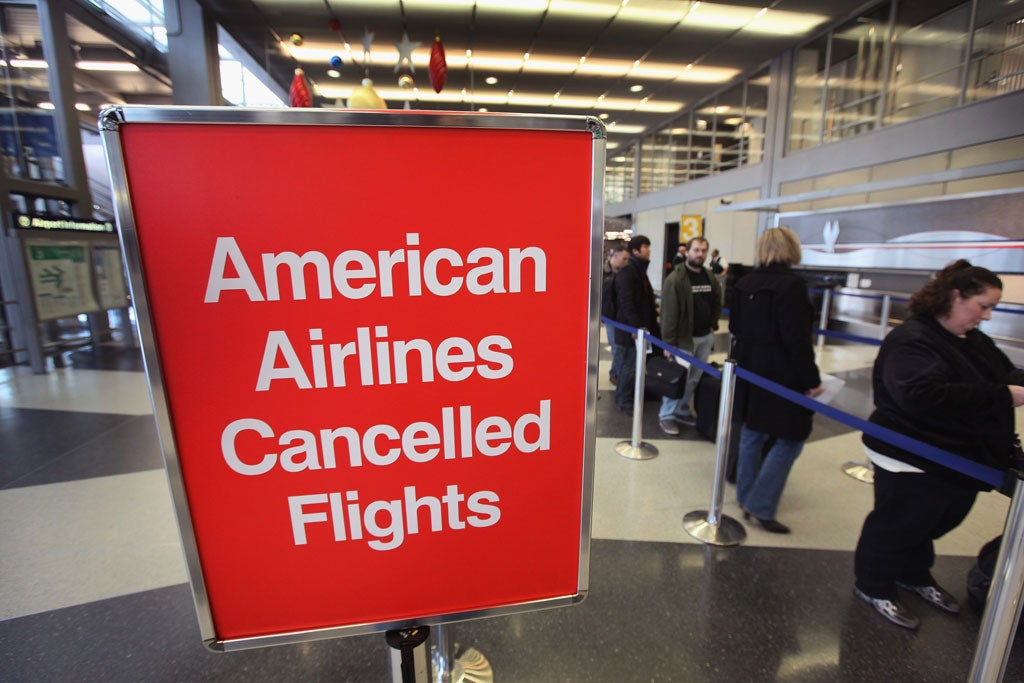Simon Calder: It's business as usual... no, honestly, it really is
The man who pays his way

Your support helps us to tell the story
From reproductive rights to climate change to Big Tech, The Independent is on the ground when the story is developing. Whether it's investigating the financials of Elon Musk's pro-Trump PAC or producing our latest documentary, 'The A Word', which shines a light on the American women fighting for reproductive rights, we know how important it is to parse out the facts from the messaging.
At such a critical moment in US history, we need reporters on the ground. Your donation allows us to keep sending journalists to speak to both sides of the story.
The Independent is trusted by Americans across the entire political spectrum. And unlike many other quality news outlets, we choose not to lock Americans out of our reporting and analysis with paywalls. We believe quality journalism should be available to everyone, paid for by those who can afford it.
Your support makes all the difference.Goodness, there's a lot of business as usual out there. Last week, Thomas Cook assured the travelling world that all was normal, despite it having to extend its credit limit by £100m to "improve its resilience". (Couldn't we all do with that each December?)
This week, the first thing anyone visiting aa.com to book a flight read was "American Airlines is flying normal schedules and conducting business as usual". Even British Airways sought to reassure passengers: "If you are due to travel on an American Airlines flight, all of their services will continue to operate as normal."
Travellers booked on transatlantic flights that AA cancelled this week might not agree with the "normal schedules" line, but I'll get to that later. The reason the giant airline felt it necessary to assure passengers that all was normal was because it had just opted to follow its major competitors into the "carwash", as Chapter 11 of the US Bankruptcy Code is popularly known.
American Airlines assures the world it will emerge as "a more efficient, financially stronger, and competitive airline". Its big rivals, from Continental and United to Delta, came out of the carwash cleaner and leaner.
Chapter 11 offers companies the chance to turn over a new leaf, giving protection from creditors while they reorganise the business. Workers' contracts are renegotiated (not always favourably from the perspective of some flight crews and ground staff) while existing creditors watch new lenders secure better deals. The unintended consequence of Chapter 11 is that passengers hear the word "airline" and "bankruptcy" in the same sentence, and understandably misconstrue that their flight might be grounded and their money lost.
Just after the news emerged, Ben Bawden got in touch to say he was hoping to make a new year trip to Las Vegas. The best deal was on American Airlines. Should he book? Yes, if the price is right, though he may have a better trip on the non-stop, high-class services of Virgin Atlantic or British Airways.
The reason BA is keen to reassure customers about AA's robustness is because of the pair's comprehensive "code-share" agreement. This week, some BA passengers with code-share tickets linking Heathrow with Boston, Chicago and New York found their trips re-scheduled because American had cancelled services. Wednesday was, of course, the day Britain's public-sector workers went on strike. Fears of gridlock at Heathrow never materialised, but more than a dozen airlines scrapped flights to and from the airport. Besides those grounded AA arrivals and departures, airlines from El Al and Etihad to Icelandair and TAP Portugal cancelled flights.
A cynic might speculate that the airlines actually took advantage of public workers' unhappiness at pension proposals. They could blame unions for the need to reshuffle passengers on to alternative flights, while in fact cancelling flights that would have proved unprofitable on one of the quietest days of the year.
But I think a different motive may be at play. Europe's passenger-rights legislation can prove very costly to airlines. Faced with the possibility of having to find accommodation for passengers around Heathrow at very short notice (and very high prices), they may have opted to limit the damage by cancelling flights. So the laws designed to improve the passenger experience may have had exactly the opposite effect to the legislators' intention to maintain business as usual.
Does Britain send visitors the Wright signals?
The US financial markets were unimpressed with American Airlines. The carrier's parent company, AMR, lost five-sixths of its market value on the Chapter 11 news. Terry Maxon, of the airline's home-town newspaper, the Dallas Morning News, described it as "the stock's lowest close since Orville said to Wilbur, 'Why don't we put an engine on it and take it to North Carolina?'."
When, 108 years ago this month, the Wright brothers pioneered powered flight at Kill Devil Hills in North Carolina, above, aviation was a simple enterprise that relied on good luck and good judgement. Today, it is a complex business involving the right people in the right places at the right times. And when, as on Wednesday, some of those people exercise their right to strike, the effects are always hard to predict.
The long-term travel effect of the day of action will come not from the strike itself, but from the predictions of its possible impact. Passengers, whether on holiday or business, do not like uncertainty, and dire warnings of 12-hour delays at Heathrow do not enhance the UK's appeal as a place to visit.
travel@independent.co.uk
Join our commenting forum
Join thought-provoking conversations, follow other Independent readers and see their replies
Comments